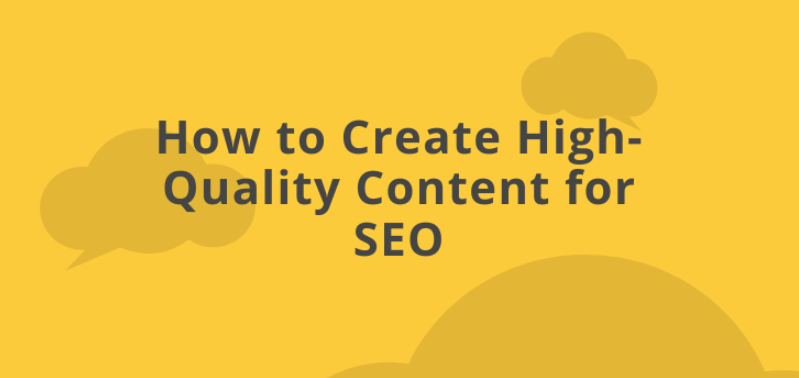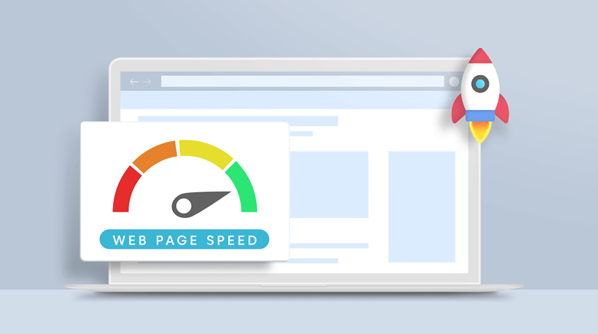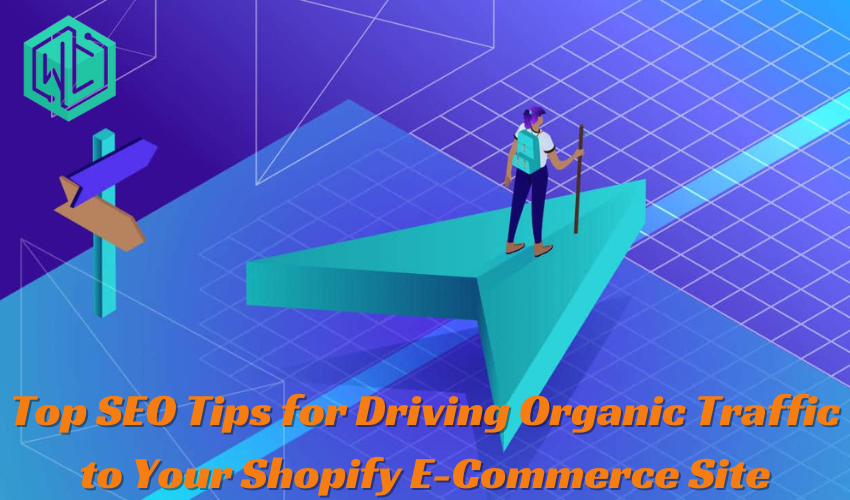Are you looking to increase organic traffic to your Shopify e-commerce site? Look no further! In this article, we will provide you with top SEO tips to improve your site’s visibility on search engines and attract more potential customers. With these expert insights, you’ll be able to optimize your Shopify site effectively and rise above your competitors. Let’s dive in!
Table of Contents
- Understanding Keywords for Your Shopify E-Commerce Site
- High-Quality Content Creation and Optimization
- Utilizing Schema Markup for Enhanced Visibility
- Top SEO Tips for Your Shopify E-Commerce Site
- Optimizing Site Speed and Mobile Responsiveness
- Building Quality Backlinks for SEO
- Leveraging Social Media for SEO and Organic Traffic
- Conclusion
- FAQs
- 1. What do keywords play in driving organic traffic to a Shopify e-commerce site?
- 2. How can high-quality content creation and optimization improve organic traffic to a Shopify e-commerce site?
- 3. What is schema markup, and how can it enhance the visibility of a Shopify e-commerce site?
- 4. How can a Shopify e-commerce site optimize product pages for better search engine visibility?
- 5. What are some strategies for building high-quality backlinks to drive organic traffic to a Shopify e-commerce site?
- 6. How can a Shopify e-commerce site stay up-to-date with SEO trends and algorithm updates?
Understanding Keywords for Your Shopify E-Commerce Site
When it comes to optimizing your Shopify SEO for an e-commerce site for organic traffic, keywords are crucial. Research and identify highly relevant keywords that your potential customers are likely to use when searching for products or services similar to yours. Incorporate these keywords naturally into your product descriptions, meta tags, and URLs to increase your site’s visibility in search engine results.
High-Quality Content Creation and Optimization

relevant, and engaging content is paramount to driving organic traffic to your Shopify e-commerce site. Ensure that your product descriptions, blog posts, and other site content are not only informative but also optimized for relevant keywords. This will not only enhance the user experience but also improve your site’s ranking in search engine results.
Utilizing Schema Markup for Enhanced Visibility
Leverage the power of schema markup to provide search engines with detailed information about your products, services, and business. By implementing structured data markup on your Shopify e-commerce site, you can enhance your search listings with rich snippets, which can significantly improve click-through rates and drive more organic traffic to your site.
Top SEO Tips for Your Shopify E-Commerce Site
Optimize Your Product Pages
Each product page should boast a unique, keyword-rich title and meta description. Integrate relevant keywords naturally into product descriptions, ensuring they accurately reflect your offerings. Additionally, employ high-quality images with descriptive alt tags, enhancing both user experience and search engine visibility.
Improve Your Site Speed

Address the impact of a slow-loading website by optimizing your Shopify store’s speed. This involves compressing images, minimizing JavaScript and CSS files, and employing caching technology. A faster website not only positively influences SEO but also enhances overall user satisfaction, reducing bounce rates.
Create Unique and Engaging Content
Regularly update your e-commerce store with diverse content such as informative blog posts, articles, or engaging videos related to your industry. This not only attracts organic traffic but also encourages visitors to spend more time exploring your site, improving its overall SEO performance.
Build High-Quality Backlinks
Prioritize the acquisition of authoritative and backlinks through strategic approaches like guest blogging, influencer collaborations, and outreach to other reputable websites in your industry. High-quality backlinks significantly contribute to driving organic traffic and elevating your search engine rankings.
Utilize Social Media Channels
Leverage the power of social media platforms, including Facebook, Instagram, Twitter, and Pinterest, to build brand awareness and engage with potential customers. Social signals positively impact SEO, making it crucial to actively promote your products and interact with your target audience on these platforms.
Optimize for Mobile
Recognizing the prevalence of mobile internet usage, ensure your Shopify store features a responsive design, swift loading times, and user-friendly navigation on mobile devices. Optimizing for mobile not only improves SEO but also caters to the majority of users accessing your website through smartphones and tablets.
Implement Advanced On-Page SEO Techniques
Enhance on-page SEO by employing proper header tags (H1, H2, H3) to effectively structure your content. Optimize URLs, meta tags, and image alt text with relevant keywords to facilitate search engines in understanding and indexing your site’s content more efficiently.
Leverage User Reviews
Actively encourage satisfied customers to leave reviews on your product pages. Positive user reviews not only boost your site’s credibility but also generate valuable user-generated content, a factor that search engines consider when evaluating the relevance and authenticity of your site.
Monitor and Analyze Your SEO Efforts
Regularly utilize analytics tools to comprehensively review your Shopify site’s performance. Identify areas for improvement, track keyword rankings, and monitor organic traffic growth. This data-driven approach allows you to make informed adjustments to your SEO strategy, ensuring ongoing optimization.
Stay Up-to-Date with SEO Trends
Acknowledge the dynamic nature of SEO by staying informed about the latest trends and algorithm updates. Actively follow reputable industry blogs, participate in relevant online forums, and continuously adapt your SEO strategies to remain competitive in the ever-evolving digital landscape. Keeping abreast of industry changes ensures your tactics align with current best practices and search engine preferences.
Optimizing Site Speed and Mobile Responsiveness

Site speed and mobile responsiveness are critical factors in driving organic traffic to your Shopify e-commerce site. Ensure that your site loads quickly and is optimized for smooth performance on various devices. A fast-loading, mobile-friendly site not only provides a better user experience but also has a positive impact on search engine rankings.
Building Quality Backlinks for SEO
Earning high-quality backlinks from authoritative and relevant websites can significantly boost your Shopify e-commerce site’s organic traffic. Focus on creating compelling, shareable content that naturally attracts backlinks from reputable sources within your industry. Quality backlinks can enhance your site’s authority and credibility in the eyes of search engines, resulting in improved organic visibility.
Leveraging Social Media for SEO and Organic Traffic
Social media can be a powerful ally in driving organic traffic to your Shopify e-commerce site. By creating and sharing valuable content across various social platforms, you can increase brand visibility, attract potential customers, and drive more traffic to your site. Engage with your audience, encourage social sharing, and utilize social media to amplify your SEO efforts and expand your organic reach.
Conclusion
implementing these top SEO tips can significantly enhance the organic visibility and traffic of your Shopify e-commerce site. By focusing on keyword optimization, content creation, schema markup, site performance, backlink building, and social media engagement, you can effectively drive more organic traffic and improve the overall SEO performance of your e-commerce site.
FAQs
1. What do keywords play in driving organic traffic to a Shopify e-commerce site?
Keywords are crucial for optimizing a Shopify e-commerce site for organic traffic. It’s important to research and identify highly relevant keywords that potential customers are likely to use when searching for products or services similar to yours. Incorporating these keywords naturally into product descriptions, meta tags, and URLs can increase your site’s visibility in search engine results.
2. How can high-quality content creation and optimization improve organic traffic to a Shopify e-commerce site?
Creating high-quality, relevant, and engaging content is paramount to driving organic traffic. It’s important to ensure that product descriptions, blog posts, and other site content are not only informative but also optimized for relevant keywords. This can enhance the user experience and improve the site’s ranking in search engine results.
3. What is schema markup, and how can it enhance the visibility of a Shopify e-commerce site?
Schema markup provides search engines with detailed information about products, services, and businesses. By implementing structured data markup on a Shopify e-commerce site, can enhance search listings with rich snippets, significantly improving click-through rates and driving more organic traffic to the site.
4. How can a Shopify e-commerce site optimize product pages for better search engine visibility?
Each product page should have a unique, keyword-rich title and meta description. It’s important to integrate relevant keywords naturally into product descriptions and employ high-quality images with descriptive alt tags to enhance both user experience and search engine visibility.
5. What are some strategies for building high-quality backlinks to drive organic traffic to a Shopify e-commerce site?
It’s important to prioritize the acquisition of authoritative and relevant backlinks through strategic approaches such as guest blogging, influencer collaborations, and outreach to other reputable websites in the industry. High-quality backlinks significantly contribute to driving organic traffic and elevating search engine rankings.
6. How can a Shopify e-commerce site stay up-to-date with SEO trends and algorithm updates?
To stay informed about the latest trends and algorithm updates, it’s important to actively follow reputable industry blogs, participate in relevant online forums, and continuously adapt SEO strategies to remain current and effective. Understanding the dynamic nature of SEO and making informed adjustments to SEO strategies is crucial for ongoing optimization.


